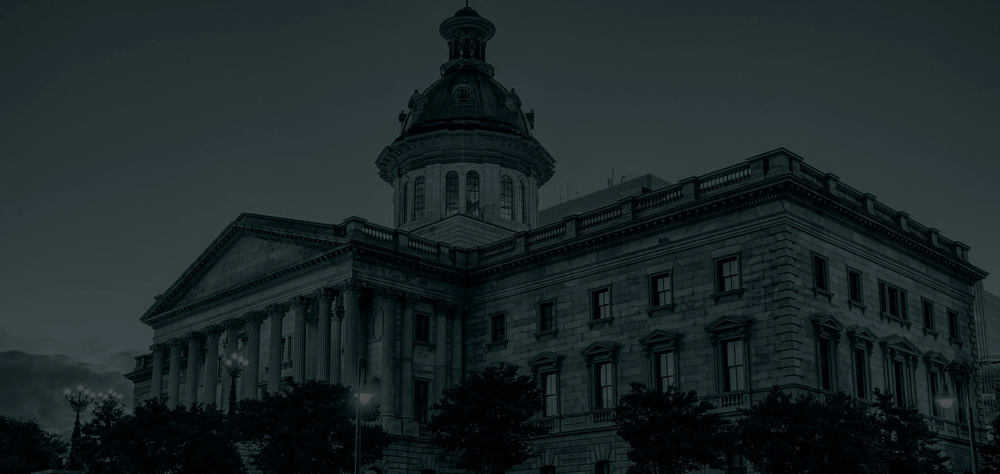
Recent Posts:
- When a Dental License Investigation Results in a Dental Malpractice Complaint
- Defending Your South Carolina Teaching Certificate
- South Carolina Alcohol Beverage License Defense
- Responding to a South Carolina Board of Medical Examiners Complaint
- Three Things to Consider when Applying for, or Renewing, a Nursing License in SC
Categories:

Do I Have To Report To The Recovering Professional Program?
November 06, 2018 by Robyn W. Madden
Professional Licensing Attorneys Defending Clients Referred to The Recovering Professional Program
The South Carolina Department of Labor, Licensing and Regulation (“LLR”) regulates over forty different professions in South Carolina. Regulated professions include the South Carolina Board of Nursing, Board of Dentistry, and Board of Medical Examiners. If a complaint is initiated against your professional license, LLR will investigate the matter to determine whether a violation of the practice act has occurred.
If an LLR complaint has been initiated against your license, the investigator assigned to your LLR complaint will provide you with a lot of information to process. If the LLR complaint initiated against you alleges drug diversion, criminal or unprofessional conduct involving drugs or alcohol, or even documentation issues involving controlled substances, your assigned LLR investigator will likely direct you to report to the Recovering Professional Program (RPP) to determine whether you suffer from a drug or alcohol problem. Importantly, a referral to RPP does not automatically mean that you will be required to be a participant in the program.
What is RPP?
The Recovering Professional Program is an intake, referral, and monitoring program. RPP screens professionals licensed by the following LLR Boards for alcohol or substance use disorders or a dual diagnosis of an alcohol or substance abuse concern and mental illness.
- Chiropractic Examiners;
- Counselors, Marriage and Family Therapists and Psychoeducational Specialists;
- Dentistry;
- Engineers/Surveyors;
- Long Term Health Care Administrators;
- Medical Examiners;
- Board of Nursing
- Occupational Therapy;
- Optometry;
- Pharmacy;
- Physical Therapy Examiners;
- Podiatry Examiners;
- Psychology;
- Social Work Examiners;
- Speech Language Pathology and Audiology, and
- Veterinary Medical Examiners
What happens when you report to RPP?
Although a licensee may voluntarily report to RPP for intake and treatment, most referrals originate from the assigned LLR investigator.
If you are directed to report to RPP, you will be scheduled for an intake appointment. During the intake appointment, you will meet with an assigned RPP counselor who will discuss the RPP intake process and program with you. You will also be asked to complete RPP intake paperwork.
At the conclusion of your RPP intake meeting, your assigned RPP counselor will refer you for an evaluation at an RPP approved facility. The evaluator at the approved facility will evaluate you to determine whether you have a diagnosable condition under the DSM V and likely subject you to a drug and alcohol screen. If you have been referred to RPP, it is important to ask your counselor whether you may continue to work during the evaluation process.
If the evaluator concludes that you suffer from a diagnosable condition of the DSM V, you will be placed in the RPP monitoring program. RPP participants are generally monitored for five years and are expected to comply with RPP’s meeting and drug testing requirements. The evaluator also generally has the discretion to place the licensed professional in the RPP program for one year.
Do I have to Report to RPP?
Now you might think to yourself- I don’t have any substance abuse issues, so is monitoring by RPP really necessary? The brief answer is yes. Importantly, a referral to RPP does not mean that you have a drug or alcohol problem, or that you will be forced to participate in the RPP program. However, it is important to understand that your participation with RPP is critical. Noncompliance, to include missing required meetings, failure to timely turn in meeting logs, failing to drug screen when directed and/or a positive drug screen may result in a report to LLR or discharge from the program. Noncompliance places you at risk of a second investigation and possible disciplinary action, even temporary suspension of your license.
If you don’t report to RPP to submit to an evaluation, or you are non-compliant and the Board perceives you as a threat to the public, the board can suspend your license. If your license is suspended, you must timely request a hearing to challenge the suspension.
When faced with an LLR complaint, it is important that you understand exactly what is at stake. Navigating through an LLR investigation is generally unchartered territory for most licensees. If you are faced with defending your license against an LLR Board Complaint and/or navigating the RPP process, our South Carolina Professional License Defense Attorneys are here to help. Give us a call today to learn more about the process and how we can help.